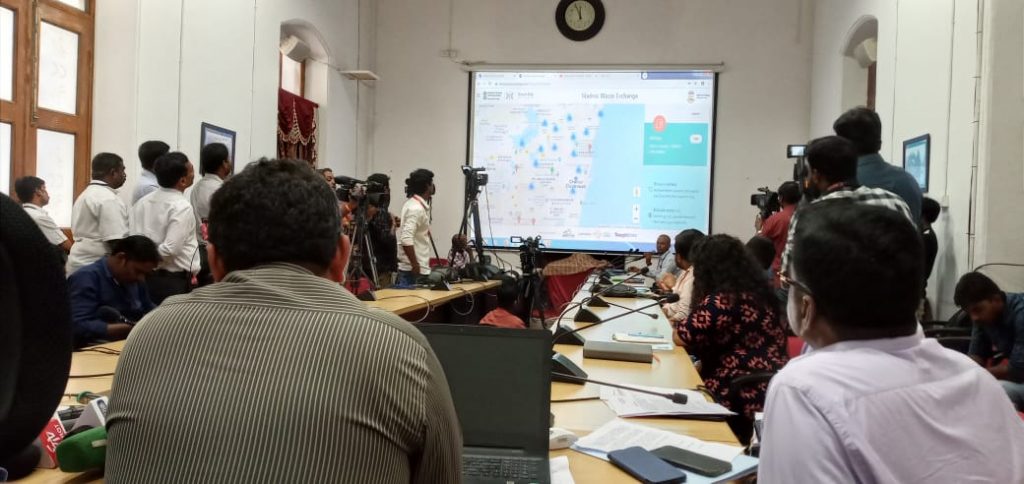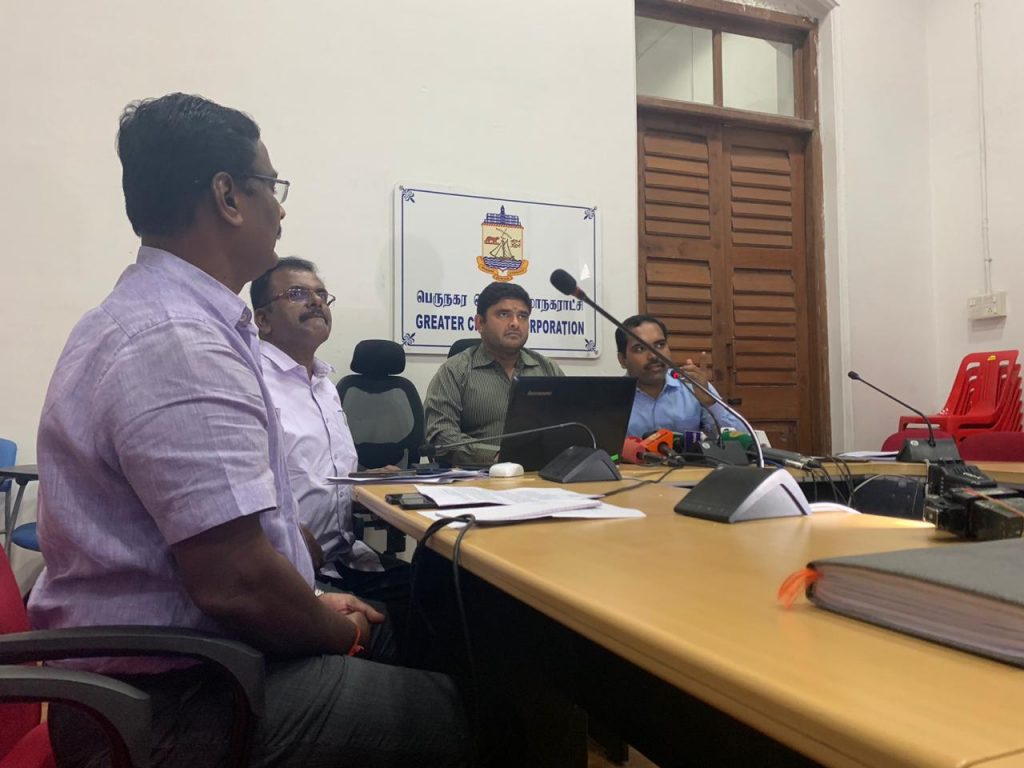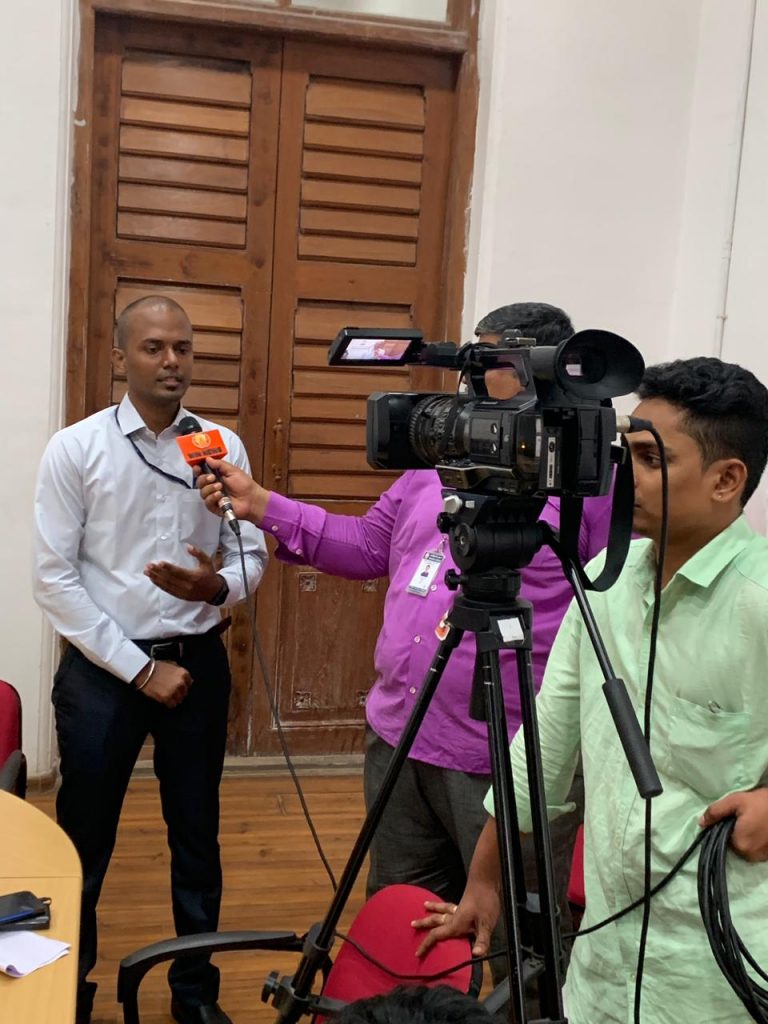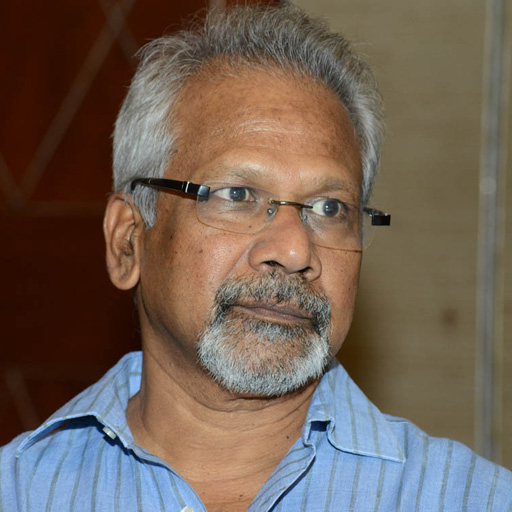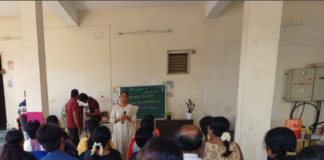The Chennai Online Waste Exchange Network (Madras Waste Exchange) a project aimed at ‘Zero Waste’ was today officially launched by the Greater Chennai Corporation (GCC). The Waste Exchange is an attempt by the Solid Waste Department of GCC to create an platform for buyers and sellers of various types of waste.
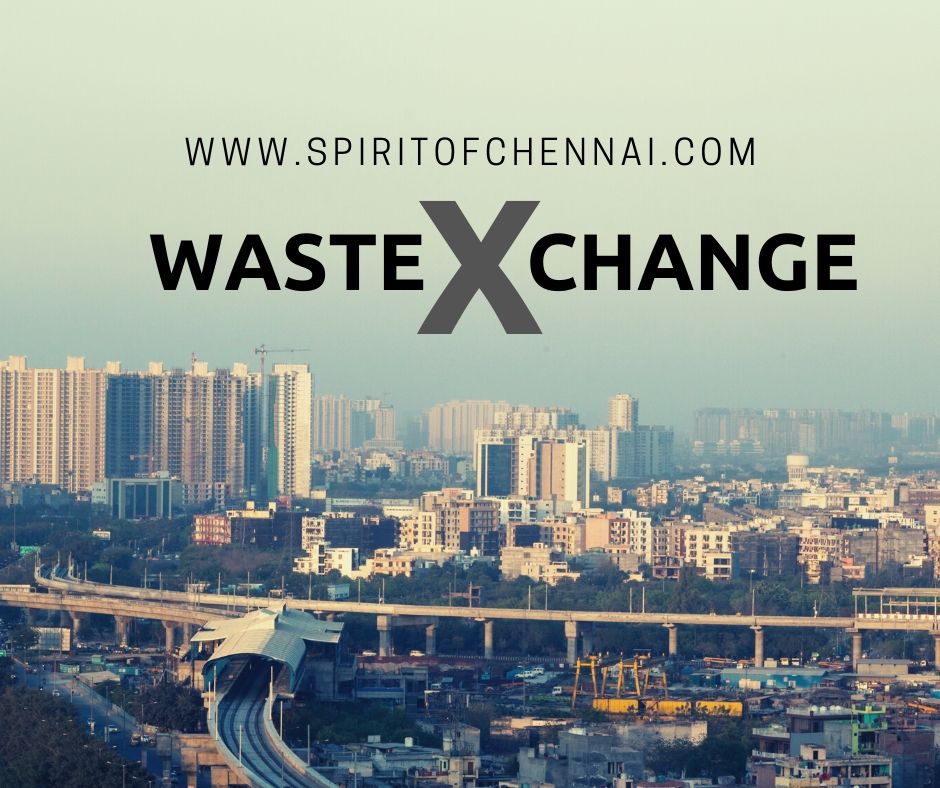
What is Chennai Waste Exchange About?
The Madras Waste Exchange will integrate the Decentralised Waste Collections Centers established by the SWM department of the Chennai Municipal Body.
Currently the platform allows the users to self register and list the type of waste that is available with them. This information is geo-coded and is availble to all the buyers who can see this listed item and express intrest to buy them. Once the transaction is completed, the product is removed from the listing.
This is basically an aggregator app which facilitates a connecton between the waste generator and waste consumer.
Why this Online Platform and App?
Solid Waste Management is a challenge in Indian cities and initiatives like the Waste Exchange surely are a good starting point to solve the problem.
Madras Waste Exchange is a Trading platform for segregated waste. It was created under Smart city fellowship, which comes under Smart City Missions along with Greater Chennai Corporations Solid Waste Management department.
The Waste Exchange Project was conceived by the by the Greater Chennai Corporation and Smart Cities Mission. The Smart Cities Mission had selected 100 Smart Cities Fellows after a competitive selection process.
Mr Azhagu was selected and attached to Chennai Smart City as part of the project. Under his leadership, the Waste Exchange Project or the Zero Waste Project was developed. The project was developed with the assistance of volunteers from Tech for Cities (Led by Startup Vijay Anand) and Thought Works.
Who Did it?
The Greater Chennai Corporation under the leadership of G Prakash IAS is making a lot of efforts to address the solid waste problem of the city.
Speaking at the launch, he mentioned the various efforts like decentralised waste collection and seggregation efforts undertaken by the city. Others present at the launch included P. Madhusudhan Reddy, IAS – Deputy Commissioner (Health) and Thiru Mahesan – Chief Engineer Buildings of Greater Chennai Corporation.
To give you a perpective Chennai generate about 5200 Metric Tons of waste every day. Read our article of Chennai Waste Management.
The Web Portal link is www.madraswasteexchange.com and the Android app can be downloaded from Play store.
Implementation of the Madras Waste Exchange
The Greater Chennai Corporation is having Resource recovery centers(RRC) and Micro compost centers(MCC) in all 15 Zones across Chennai. The RRC’s do segregation of waste collected from the households and markets of respective zones. There are around ten to fifteen categories of segregation types depending upon waste produced in zones. The MCC’s are used to produce compost from wet waste.
The segregated waste in RRC’s are of less value and selling them to market is becoming challenge for corporation. Further the availability of RRC’s and MCC’s are not known to many.
The Madras Waste Exchange( Online Platform) will act as a platform to bridge the corporation’s segregated waste to the potential buyers.
The Waste Exchange will act as connection between the following people.
- Greater Chennai Corporation with Buyers of waste, Entrepreneurs.
- Non-government entities like school, college, office and bulk waste generators with buyers.
- Greater Chennai Corporation with non-government entities.
About the Zero Waste – Madras Waste Exchange Project
Business plan on comprehensive waste management
Team Members: Azhagu Pandia Raja, Jismi Varghese, Pinky Taneja
Mentor: Prof. R.J. Masilamani
Current Scenario
- Waste management is an ongoing challenge due to weak institutions, chronic under-resourcing and rapid urbanization. Legislation for city level comprehensive waste management plan is not available for many cities.
- Urban Local Bodies (ULBs) suffer from various issues like infrastructure and capacity constraints to address the multi-dimensional problems of waste management.
- Not much focus on secondary market and niche segment for strengthening of waste markets. Financial constraints of ULBs and lack of incentives to public is acting as barrier for segregation at source, which is a vital component of waste management.
- Business model or plan showcasing the potential of city to attract public and private investments is not available. Lack of proper planning, design, execution and monitoring has led to in-efficient waste management practices.
Project Approach
- Finding the key drivers, challenges and opportunities for the global solid waste management market and how that can be used for waste produced in India. Understanding how local solutions (Wards, Villages) and Private innovative solutions (Startup’s, NGO’s) in SWM can be scaled up to meet the waste management requirements across India.
- Creating Framework to find Ways by which ULB’s can attract Public and Private Investments in waste management.
Project methodology
- Project Zero Waste will use Quintuple approach to bring in various stakeholders from Experts to NGO’s, to devise a framework for creating a Waste Exchange which will act as one stop solution for waste trade and waste management issues. And to create a market for processed waste and waste products by exploring secondary markets and agriculture markets. Finally a Business model for comprehensive waste management at city level will be devised
- (Initially only Plastic and wet waste for compost will be focused) which could be scaled across India.
Novelty
Finding the key drivers, challenges and opportunities for the global solid waste management market and how that can be used for waste produced in India. Understanding how local solutions (Wards, Villages) and Private innovative solutions (Startup’s, NGO’s) in SWM can be scaled up to meet the waste management requirements across India. Creating Framework to find Ways by which ULB’s can attract Public and Private Investments in waste management.
Madras Waste Exchange will use Quintuple approach to bring in various stakeholders from Experts to NGO’s, to devise a framework for creating a Waste Exchange which will act as one stop solution for waste trade and waste management issues. And to create a market for processed waste and waste products by exploring secondary markets and agriculture markets.
Scalability
The waste exchange application is designed in a multitenant model. It can be scaled up to any number of cities. Complete country can use this application and benefit out of it. The buyer from north of India can buy or sell in South of India once scaled up.
The scalability can be done both horizontally and vertically. Horizontally by expanding to any number of cities. Vertically by including any kind of waste allowed by law of country.
Since the application comes as web portal and mobile Android application, it can be accessed from any part of the world .
Financial Sustainability
The application is designed in a self sustaining way. These are the following ways which makes this platform attractive and self sustaining.
- Since it’s a trading platform, the seller of the segregated waste can sell at a cost fixed by him. Here the seller is Corporation, so the corporation will get profit out of this platform which inturn could be used for the maintenance cost of the waste exchange application.
- The Citizens can also use this application in the same way like Corporation. Minimal charge can be applied on transactions made by non-government entity. This cost will help in sustaining the waste exchange as well as making it a profitable application.
- The opportunity cost created by the application is very huge. Since it induces segregation at source and incentives people to sell their waste instead of dumping it, the collection cost in terms of fund, man power, vehicle and landfill space will reduce drastically. This way corporation can save huge amount of resource utilisation.
Impact
The proposed Waste Exchange is first of its kind in India.
The Waste Exchange once up and running will be helpful in the following ways,
- Corporation officials can monitor the real time data and availability of materials in RRC’s and MCC’s across all 15 Zones in Chennai.
- Zone wise performance can be analyzed.
- Report of segregated waste in required format can be taken anytime.
- Buyers can directly buy our segregated waste through the Exchange.
- Any citizen can act as seller. Schools, colleges, apartments and bulk waste generators can register in this platform and sell their waste. This will reduce the amount of waste ending in Landfill.
- Anyone can register as a buyer.
- Corporation can monitor the amount of waste sold by non-government entities across Chennai.
- E-waste, C&D waste will also be handled by this platform.
URL : www.madraswasteexchange.com
Andriod Playstore: Madras waste exchange

